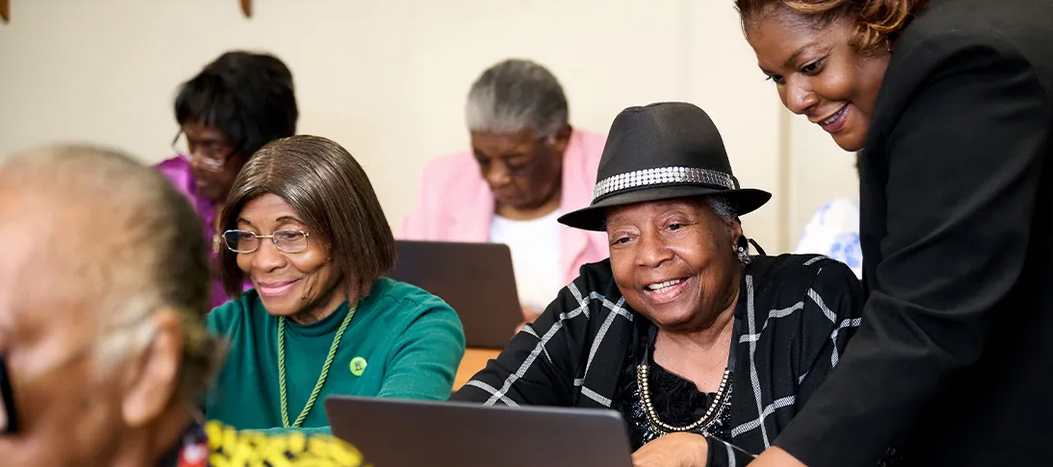Photos: YouTube\MarketPlace.org
(Washington, D.C.) — Prohibiting critical race theory and anti-racism education in Texas schools would suppress educational efforts that are critically needed to confront and address racism and discrimination, according to a letter brief sent Thursday to Texas Attorney General Ken Paxton by the Lawyers’ Committee for Civil Rights Under Law, the NAACP Legal Defense and Education Fund (LDF), Texas Appleseed and other organizations.
Today’s letter responds to Attorney General Paxton’s request for interested parties to submit briefing on whether critical race theory (CRT) and anti-racism education violate the Equal Protection Clause of the Fourteenth Amendment, Title VI, and the equal rights guarantee of the Texas Constitution.
Attorney General Paxton has been asked to issue a legal opinion on this question in January 2022, at the request of Texas Rep. James White (HD 19). The organizations are urging Attorney General Paxton to refrain from issuing an opinion or to issue an opinion confirming that CRT and antiracism education are fully consistent with federal and state constitutional protections, and should be encouraged in schools. Finding otherwise risks furthering the misinformation campaign wrongly disparaging those important race equity theories and practices and advancing Texas lawmakers’ recent censorship agenda in public schools.
“There is nothing inherent in critical race theory and anti-racism education that violates the Equal Protection Clause, Title VI, or the Texas Constitution,” said David Hinojosa, director of the Educational Opportunities Project with the Lawyers Committee for Civil Rights Under Law. “Broadly banning diversity and inclusion practices would invalidate anti-discrimination laws, violate foundational constitutional principles, and lead to inconsistent application of education curricula that centers a white, heteronormative perspective. Our diversely rich communities deserve inclusive education free from unjust political restrictions.”
“Our public education curricula have long ignored and marginalized the experiences and perspectives of Black people and other communities of color as we struggle to grapple with our racist past and tackle the racial inequalities that persist to the present day,” said LDF Senior Deputy Director of Litigation Jin Hee Lee. “Critical race theory and antiracism are important tools to understand how we can advance racial equity, and efforts to mischaracterize and disparage them—as well as other laudable efforts to promote a more accurate, inclusive, and equitable education—are nothing more than unlawful censorship aimed at institutionalizing false narratives about racism in America.”
“Section 3 of the Texas Constitution builds upon the protections guaranteed by the Fourteenth Amendment to the U.S. Constitution and Title VI of the Civil Rights Act of 1964,” said Deborah Fowler, executive director of Texas Appleseed. “The circumstances that led to the adoption of the Texas Constitution of 1876, the current version of the state constitution, point to a clear conclusion that critical race theory and anti-racism education are actually encouraged by this foundational governing document.”
Critical race theory is an approach developed to legal scholarship that examines how and why racial inequalities persist in various aspects of American society. It is an advanced legal concept that is taught in institutes of higher education and rarely, if ever, in K-12 schools. Its use and intentions have been grossly mischaracterized and maligned by certain media and politicians seeking to block beneficial anti-racism and race-equity policies and practices adopted in schools, especially in response to the worldwide racial reckoning in the aftermath of the killing of George Floyd last year.
The debate around CRT arose from a 2020 executive order issued by the Trump administration, which banned discussions about structural inequalities and racial hierarchies and privileges by federal contractors and grant recipients, including diversity, equity, and inclusion training. While the Biden administration has struck down the executive order and issued a new order requiring all agencies to prioritize and create opportunities for communities that have been historically underserved, opponents of racial justice and inclusive education have politicized CRT and anti-racism efforts. At least eight states have passed laws seeking to ban schools from critically examining the full, truthful history of racism, sexism and genderism in America and its impact on today’s society.
Read the letter brief here.
For more information, please visit https://lawyerscommittee.org.
By Lacy Crawford, Jr








